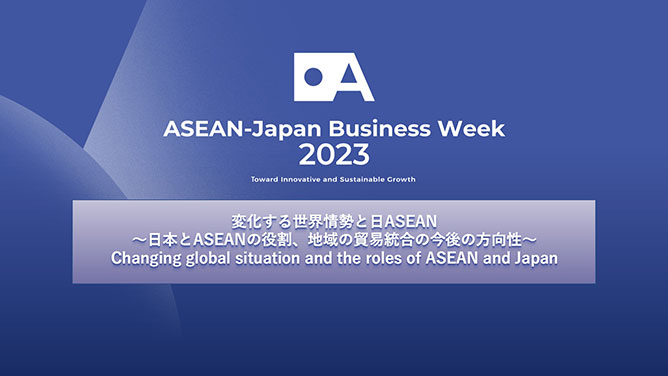

5 June[MON]
16:15 - 17:55
Changing global situation and the roles of ASEAN and Japan
SPEAKERS
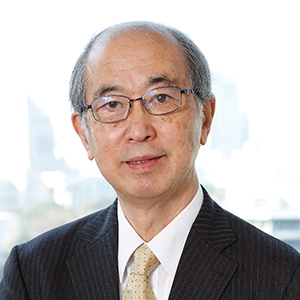
Research Institute of Economy, Trade and Industry
ChairmanWaseda University
Professor Emeritus
URATA Shujiro
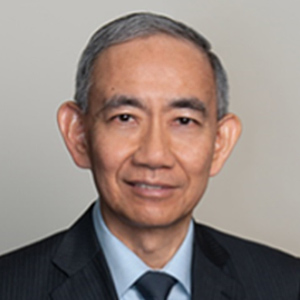
ISEAS - Yusof Ishak Institute
Director & CEO
Choi Shing Kwok
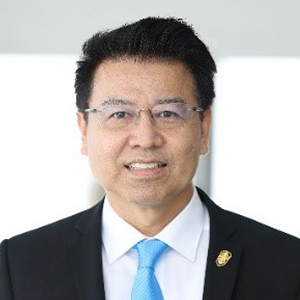
Faculty of Political Science,Thammasat University
Professor
Kitti Prasirtsuk
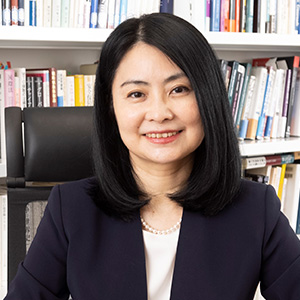
Kanagawa University Graduate School Graduate School of Law Course of Law (International Political Studies)
Professor
OBA Mie
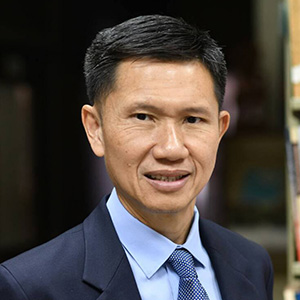
International Relations at Chulalongkorn University’s faculty of political science
ProfessorInstitute of Security and International Studies
Senior Fellow
Thitinan Pongsudhirak
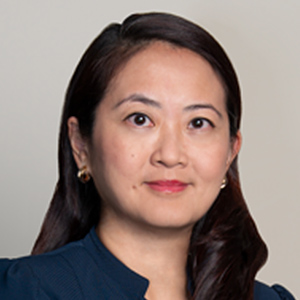
ISEAS-Yusof Ishak Institute
Senior Fellow
Sharon Seah

ASEAN Secretariat
Director, Political and Security Directorate
Tang Siew Mun

Research Institute of Economy, Trade and Industry
Consulting FellowKeio University Faculty of Economics
ProfessorEconomic Research Institute for ASEAN and East Asia(ERIA)
Chief Economist
KIMURA Fukunari
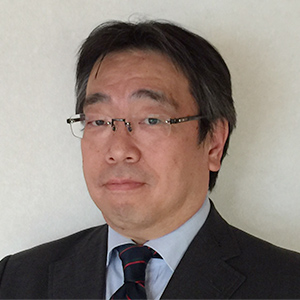
Kyushu University
Professor, Faculty of Economics, Department of International Economy and Business,
SHIMIZU Kazushi
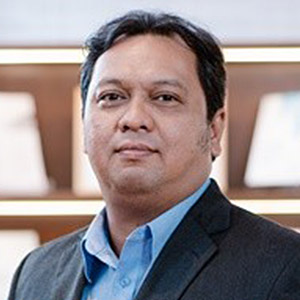
Economic Research Institute for ASEAN and East Asia (ERIA)
Senior Economist
Dionisius A. Narjoko
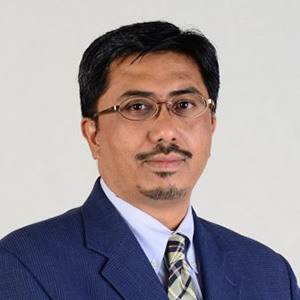
Jeffrey Cheah Institute for Southeast Asia, Sunway University
ProfessorInstitute for International Trade, University of Adelaide
Professor
Shandre M. Thangavelu
SUMMARY
In this session, experts from both Japan and ASEAN discussed the roles that Japan and ASEAN should play on the global stage amidst changing global dynamics, including the U.S.-China tension and Russia’s invasion of Ukraine. They emphasized the significance of the Regional Comprehensive Economic Partnership (RCEP) for future economic development, highlighting the challenges of member states’ implementation and expansion. They also noted the potential for upgrades and stressed the need for ongoing discussions.
The ASEAN Economic Community (AEC) was recognized to have a profound impact on RCEP, necessitating the evolution of the AEC itself.
Additionally, the digitization following the COVID-19 pandemic has given rise to challenges beyond trade, calling for considerations regarding human resource development, resilience, and digitalization. Furthermore, the viewpoint was presented that a stable geopolitical order based on rules is essential for business. ASEAN’s role in this regard has grown, with the recognition that multi-layered approaches like AUKUS and QUAD are becoming more relevant for ASEAN as well. It was highlighted that ASEAN should make daily choices rather than opting for a single path, and enhancing ASEAN’s resilience is crucial for countering major powers. The importance of ASEAN’s voice has increased, emphasizing the need for an equal partnership rather than a donor-recipient relationship to address climate change and energy issues.
